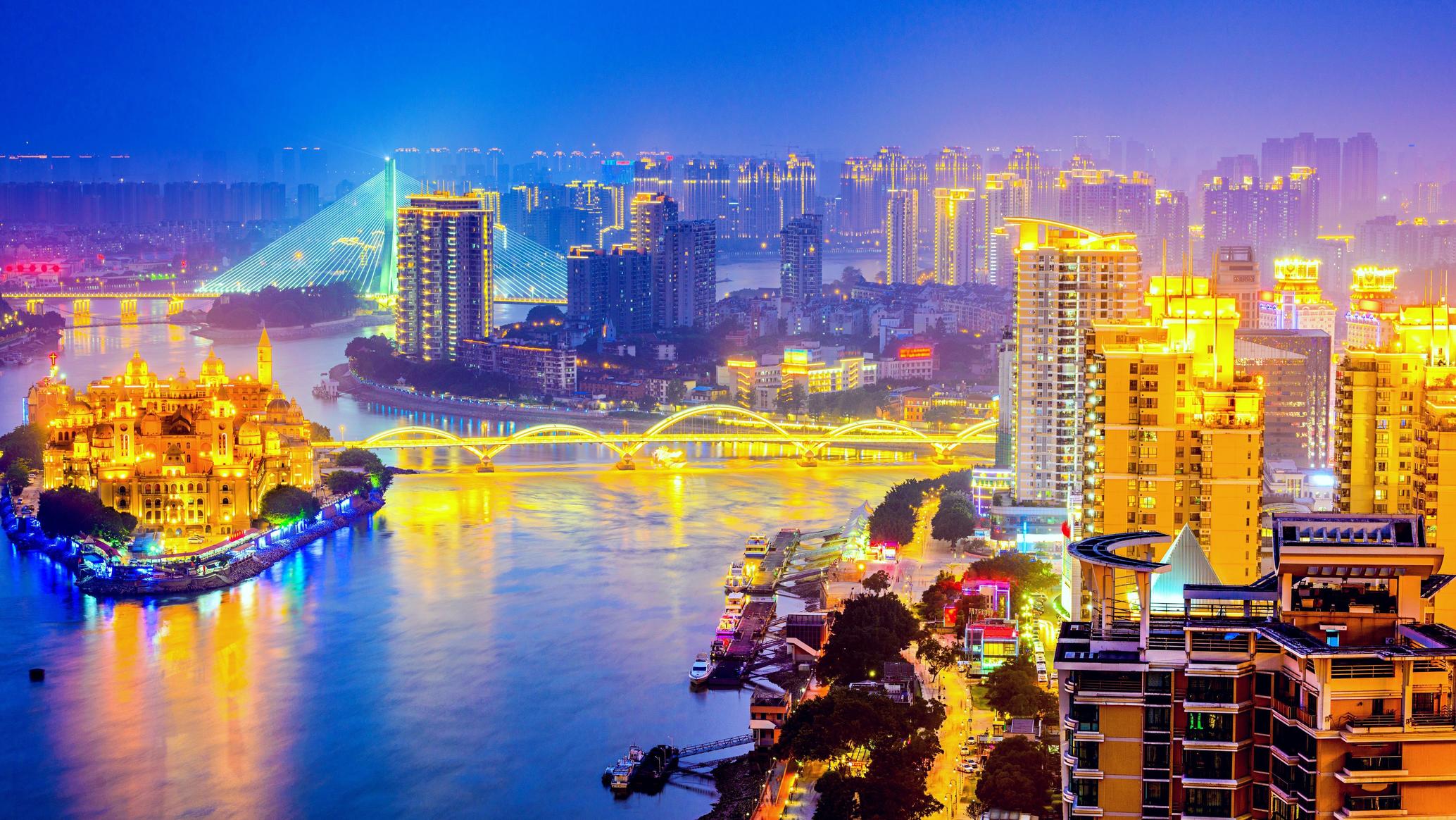
Fuzhou, located in the beautiful province of Jiangxi in China, is a city rich in history, culture, and natural beauty. With its picturesque landscapes, vibrant cityscape, and welcoming locals, Fuzhou has become a popular destination for both domestic and international tourists. As the capital city of Jiangxi, Fuzhou is known for its historical significance, dating back to over 2,200 years ago. The city has witnessed the rise and fall of numerous dynasties, leaving behind a cultural heritage that is evident in its architecture, temples, and traditional festivals. From the iconic Drum Tower to the serene surroundings of Gongqing National Forest Park, Fuzhou offers a diverse range of attractions for visitors to explore. So, let’s dive into 35 fascinating facts about Fuzhou that will give you a deeper insight into this enchanting city.
Key Takeaways:
- Fuzhou, the capital city of Jiangxi Province, is a vibrant and culturally rich city with a history dating back over 2,200 years. It is renowned for its exquisite food, tea production, and picturesque landscapes, making it a must-visit destination in China.
- Fuzhou’s blend of ancient traditions and modernity offers a unique cultural experience. From its thriving food culture and vibrant arts scene to its picturesque islands and historic temples, Fuzhou is a treasure trove of history, art, and natural beauty.
Facts 1: Fuzhou is the capital city of Jiangxi Province.
Fuzhou, also known as the “Rongcheng” (City of Banyan Trees), is a vibrant city located in southeastern China. It holds great historical and cultural significance for the province.
Facts 2: Fuzhou has a rich history dating back over 2,200 years.
The city has witnessed the rise and fall of various dynasties, leaving behind a legacy of ancient architecture, artifacts, and traditions that continue to fascinate visitors.
Facts 3: Fuzhou is renowned for its exquisite food culture.
The local cuisine of Fuzhou is famous for its delicate flavors and unique cooking techniques. From “Buddha Jumps over the Wall” to “Pian Er Chuan,” food enthusiasts are in for a treat.
Facts 4: Fuzhou is known for its tea production.
Fuzhou’s favorable climate and abundant rainfall create the perfect conditions for cultivating high-quality tea. The city is particularly known for producing jasmine tea and oolong tea.
Facts 5: Fuzhou is home to the historic Gushan Mountain.
Gushan Mountain, with its lush greenery and scenic views, is a popular attraction among tourists and locals alike. The mountain offers a peaceful retreat from the bustling city.
Facts 6: Fuzhou is the birthplace of famous historical figures.
Famous scholars and statesmen, such as Lin Zexu and Zheng Zhilong, were born in Fuzhou. Their contributions to Chinese history are highly esteemed.
Facts 7: Fuzhou boasts a flourishing cultural scene.
The city hosts a variety of festivals, art exhibitions, and performances throughout the year. From traditional operas to contemporary artworks, Fuzhou offers a vibrant cultural experience.
Facts 8: Fuzhou is known for its unique dialect, Fuzhounese.
The Fuzhounese dialect has its distinct pronunciation and vocabulary, differentiating it from other forms of Chinese. Locals take pride in their linguistic heritage.
Facts 9: Fuzhou has a network of ancient streets.
The city is dotted with well-preserved ancient streets like Three Lanes and Seven Alleys, which showcase traditional architecture and offer a glimpse into Fuzhou’s past.
Facts 10: Fuzhou is a hub for traditional Chinese medicine.
Many renowned practitioners and institutions dedicated to traditional Chinese medicine are based in Fuzhou, making it a center for research and innovation in the field.
Facts 11: Fuzhou is known for its beautiful lakes.
Fuzhou is home to a number of picturesque lakes, including West Lake and South Lake. These scenic spots provide tranquil settings for leisurely walks and boat rides.
Facts 12: Fuzhou is a transportation hub.
With its well-developed transportation network, Fuzhou serves as an important transportation hub in southeastern China, connecting various cities by air, road, and rail.
Facts 13: Fuzhou is home to some of China’s oldest temples.
Temples like Yongquan Temple and Xichan Temple showcase the city’s profound religious heritage. These ancient structures attract both religious devotees and tourists seeking cultural insights.
Facts 14: Fuzhou is known for its traditional crafts.
The city is famous for its production of lacquerware, carved stone crafts, and bamboo crafts. These traditional crafts exemplify Fuzhou’s long-standing artistic traditions.
Facts 15: Fuzhou has a vibrant night market scene.
At night, Fuzhou’s streets come alive with bustling night markets offering a wide range of local street food, handicrafts, and entertainment options.
Facts 16: Fuzhou has a strong connection to literature.
The city has been a source of inspiration for many renowned poets and writers throughout history. Fuzhou’s serene landscapes and rich cultural heritage have influenced artistic expressions.
Facts 17: Fuzhou is home to the famous Drum Mountain.
Drum Mountain, known for its peculiar shape resembling a drum, offers breathtaking views of the surrounding countryside. It is a popular destination for hiking and nature lovers.
Facts 18: Fuzhou embraces both modern and traditional architecture.
From towering skyscrapers to well-preserved ancient buildings, Fuzhou’s architectural landscape reflects its blend of modernity and tradition.
Facts 19: Fuzhou is known for its scenic islands.
Chongwu Island, Qiandeng Island, and Pingtan Island are just a few examples of the picturesque islands near Fuzhou, offering pristine beaches and serene coastal views.
Facts 20: Fuzhou is famous for its jasmine production.
Fuzhou’s favorable climate and skilled tea farmers make it a prominent producer of high-quality jasmine tea, renowned for its fragrant aroma and delicate flavor.
Facts 21: Fuzhou hosts an annual international marathon.
The Fuzhou International Marathon attracts runners from all over the world, showcasing the city’s dedication to promoting sports and fostering a healthy lifestyle.
Facts 22: Fuzhou is known for its vibrant silk industry.
Fuzhou’s silk industry has a long history, with the city producing exquisite silk products, including garments, accessories, and home furnishings.
Facts 23: Fuzhou has a thriving musical scene.
The city has nurtured many talented musicians and hosts numerous music festivals throughout the year, ranging from classical to contemporary genres.
Facts 24: Fuzhou is home to numerous universities and educational institutions.
Fuzhou’s educational landscape is diverse, with prestigious universities and research institutes offering a wide range of academic disciplines.
Facts 25: Fuzhou is known for its traditional paper-cutting art.
The intricate paper-cutting designs of Fuzhou showcase the city’s artistic craftsmanship and are prized as unique cultural treasures.
Facts 26: Fuzhou has a diverse ethnic population.
The city is home to various ethnic groups, including the Han, She, and Hui, contributing to a diverse cultural tapestry.
Facts 27: Fuzhou is famous for its unique wooden architecture.
The city’s wooden buildings, such as the West Pagoda and the Yunxiang Bridge, are exquisite examples of traditional Chinese architecture.
Facts 28: Fuzhou is known for its dynamic shopping streets.
Streets like Bayiqi Road and Zhongting Street offer a blend of modern shopping malls and traditional markets, catering to diverse shopping preferences.
Facts 29: Fuzhou has a fascinating island coastline.
The coastline of Fuzhou features enchanting islands, pristine beaches, and intriguing rock formations, attracting visitors with their natural beauty.
Facts 30: Fuzhou is famous for its unique pottery art.
The city’s pottery art, known as “Fuzhou ceramics,” exhibits intricate designs and exquisite craftsmanship, making it highly sought after by collectors.
Facts 31: Fuzhou has a vibrant street food culture.
From stinky tofu to fried oysters, Fuzhou’s street food stalls offer a tantalizing array of flavors that will satisfy any food lover’s cravings.
Facts 32: Fuzhou hosts the renowned Mazu Pilgrimage.
The annual Mazu Pilgrimage attracts thousands of devotees and tourists to Fuzhou to pay homage to the sea goddess and witness grand processions and religious ceremonies.
Facts 33: Fuzhou is known for its picturesque water villages.
Water villages like Zhuqi and Gaibei showcase the unique charm of Fuzhou’s rural areas, offering a glimpse into a traditional way of life.
Facts 34: Fuzhou is home to the famous White Pagoda.
The White Pagoda, located on Yushan Mountain, is a majestic structure that offers panoramic views of Fuzhou and its surrounding natural landscapes.
Facts 35: Fuzhou has a vibrant arts and crafts industry.
The city’s arts and crafts industry produces a wide range of exquisite items, including embroidery, bamboo products, and wood carvings, representing Fuzhou’s rich cultural heritage.
Conclusion
Fuzhou, the capital city of Jiangxi province in China, is a fascinating destination filled with rich history, stunning natural landscapes, and vibrant cultural traditions. With its numerous historical sites, delicious cuisine, and warm hospitality, Fuzhou offers something for every traveler. Whether you’re exploring the ancient architecture of the Fuzhou Confucius Temple, wandering through the scenic beauty of Wuyuan Village, or indulging in the local delicacies like Fuzhou fish balls, every moment spent in Fuzhou promises to be an unforgettable experience.
So, why wait? Plan your visit to Fuzhou and immerse yourself in the enchanting allure of this captivating city!
FAQs
1. What is the best time to visit Fuzhou?
The best time to visit Fuzhou is during spring (March to May), when the weather is pleasant, and the cherry blossoms are in full bloom. Autumn (September to November) is also a great time to visit as the temperature is mild, and the landscapes are picturesque.
2. What are the must-visit attractions in Fuzhou?
Some of the must-visit attractions in Fuzhou include the Fuzhou Confucius Temple, West Lake Park, Nanhou Street, Sanfang Qixiang (Three Lanes and Seven Alleys), and Drum Mountain.
3. What is the local cuisine of Fuzhou?
Fuzhou is famous for its unique local cuisine, which includes dishes like Fuzhou fish balls, Luosifen (river snail rice noodles), Buddha jumps over the wall (a fragrant soup), and Tangyuan (glutinous rice balls).
4. Is English widely spoken in Fuzhou?
English is not widely spoken in Fuzhou, so it is advisable to carry a translation app or a phrasebook to help communicate with the locals. However, in tourist areas and hotels, there might be some English-speaking staff.
5. Are there any accommodations available in Fuzhou?
Yes, Fuzhou offers a wide range of accommodations to suit every budget, from luxury hotels to budget-friendly guesthouses. Popular areas to stay in Fuzhou include Gulou District, Jin’an District, and Wuyi Square.
6. Are there any outdoor activities in Fuzhou?
Yes, Fuzhou is surrounded by stunning natural landscapes, offering opportunities for outdoor activities such as hiking, cycling, and boating. The majestic Tengwang Pavilion and Yu Mountain are popular destinations for outdoor enthusiasts.
Fuzhou's fascinating history, culture, and landscapes captivate visitors from around the world. Explore the mysteries of the East China Sea, uncover the symbolism behind Chinese dragons in traditional culture, or embark on a journey to discover the hidden gems of other remarkable Chinese cities like Baotou. Each destination offers a unique glimpse into the rich tapestry of China's past and present, promising unforgettable experiences that will leave you craving more.
Was this page helpful?
Our commitment to delivering trustworthy and engaging content is at the heart of what we do. Each fact on our site is contributed by real users like you, bringing a wealth of diverse insights and information. To ensure the highest standards of accuracy and reliability, our dedicated editors meticulously review each submission. This process guarantees that the facts we share are not only fascinating but also credible. Trust in our commitment to quality and authenticity as you explore and learn with us.


